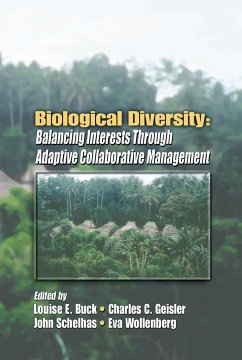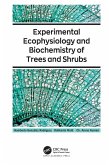We live in a world of wide pendulum swings regarding management policies for protected areas, particularly as they affect the involvement of local people in management. Such swings can be polarizing and halt on-the-ground progress. There is a need to find ways to protect biodiversity while creating common ground and building management capacity through shared experiences. Diverse groups need to cooperate to manage forests in ways that are flexible and can incorporate feedback.
Biological Diversity: Balancing Interests Through Adaptive Collaborative Management addresses the problem of how to balance local, national, and global interests in preserving the earth's biological diversity with competing interests in the use and exploitation of these natural resources. This innovative book examines the potential of adaptive collaborative management (ACM) in reconciling a protected area's competing demands for biodiversity conservation, local livelihood support, and broader-based regional development. It clarifies ACM's emerging characteristics and assesses its suitability for a variety of protected area situations.
Features
Presents a better understanding of an emerging new management paradigm for balancing interests in biodiversity conservation and livelihood sustainability
Provides interdisciplinary analysis and strategies for success
involving social and biological scientists, natural resource practitioners, policy makers, and citizens
Includes cases from around the world that illustrate how effective conservation programs can be developed though the use of adaptive management and social learning
Biological Diversity: Balancing Interests Through Adaptive Collaborative Management addresses the problem of how to balance local, national, and global interests in preserving the earth's biological diversity with competing interests in the use and exploitation of these natural resources. This innovative book examines the potential of adaptive collaborative management (ACM) in reconciling a protected area's competing demands for biodiversity conservation, local livelihood support, and broader-based regional development. It clarifies ACM's emerging characteristics and assesses its suitability for a variety of protected area situations.
Features
Presents a better understanding of an emerging new management paradigm for balancing interests in biodiversity conservation and livelihood sustainability
Provides interdisciplinary analysis and strategies for success
involving social and biological scientists, natural resource practitioners, policy makers, and citizens
Includes cases from around the world that illustrate how effective conservation programs can be developed though the use of adaptive management and social learning








